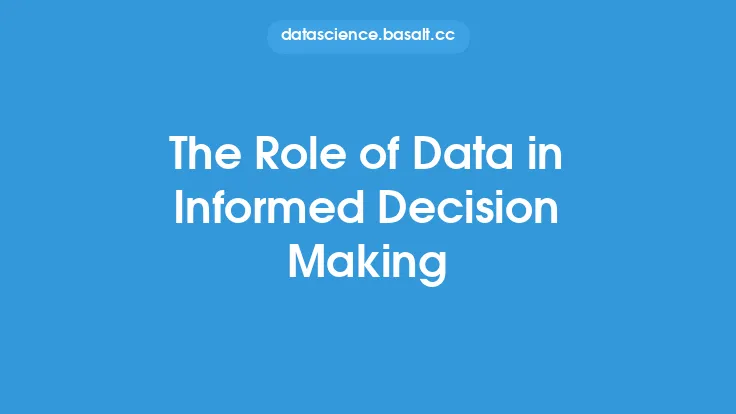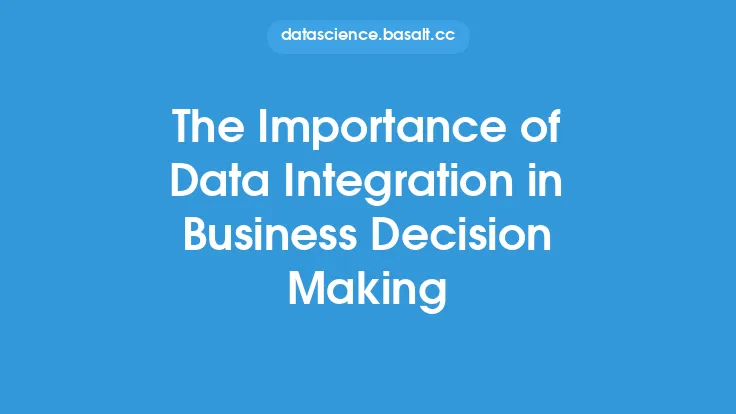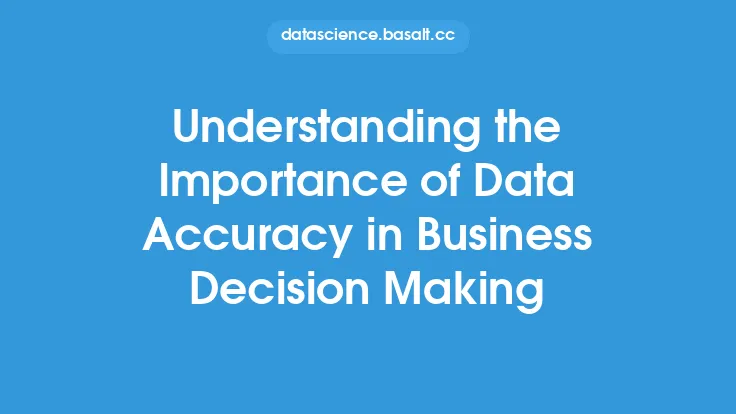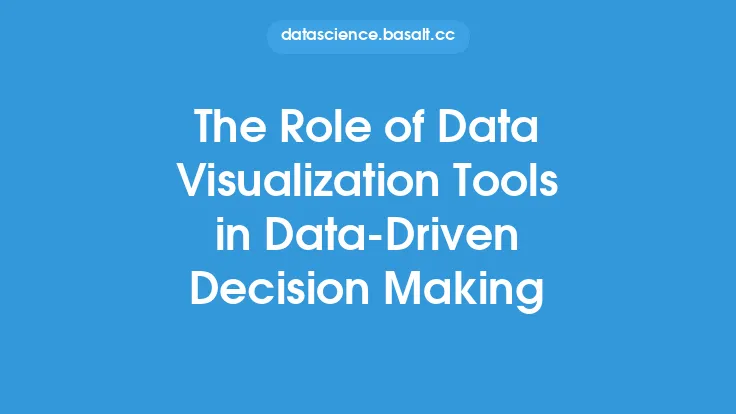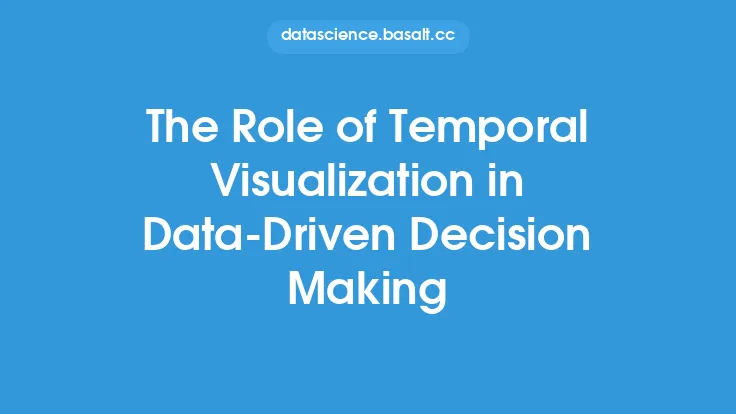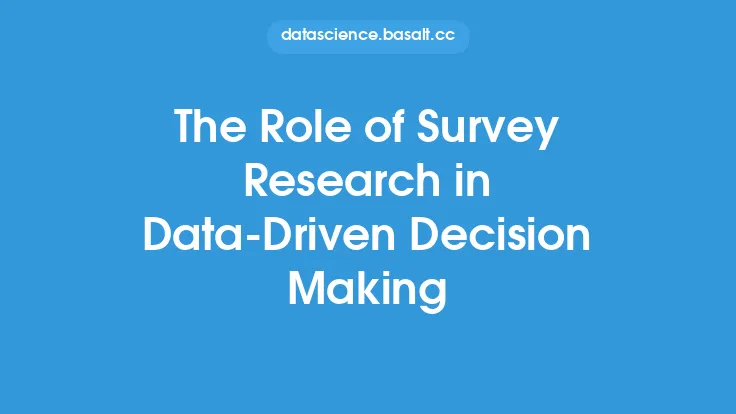In today's fast-paced and competitive business landscape, making informed decisions is crucial for driving growth, improving efficiency, and staying ahead of the competition. One of the key factors that have revolutionized the way businesses make decisions is the advent of big data. Big data refers to the vast amounts of structured and unstructured data that organizations generate and collect from various sources, including social media, sensors, customer interactions, and more. The role of big data in business decision making is multifaceted and has transformed the way companies operate, innovate, and interact with their customers.
Introduction to Big Data
Big data is characterized by its volume, velocity, variety, and veracity. The volume of big data is staggering, with estimates suggesting that the total data generated globally will reach 175 zettabytes by 2025. The velocity of big data refers to the speed at which it is generated and processed, with many organizations dealing with real-time data streams. The variety of big data is also significant, with data coming in various formats, including text, images, videos, and sensor readings. Finally, the veracity of big data refers to its accuracy and reliability, which is critical for making informed decisions.
Big Data Analytics
Big data analytics is the process of examining and analyzing big data to extract insights and patterns that can inform business decisions. There are several types of big data analytics, including descriptive analytics, diagnostic analytics, predictive analytics, and prescriptive analytics. Descriptive analytics involves analyzing historical data to understand what happened, while diagnostic analytics involves analyzing data to understand why something happened. Predictive analytics involves using statistical models and machine learning algorithms to forecast what may happen in the future, while prescriptive analytics involves using data and analytics to recommend specific actions.
Big Data Tools and Technologies
There are several big data tools and technologies that enable organizations to collect, store, process, and analyze big data. These include Hadoop, Spark, NoSQL databases, and cloud-based big data platforms. Hadoop is an open-source framework that allows organizations to store and process large amounts of data across a distributed cluster of computers. Spark is a fast and efficient data processing engine that can handle real-time data streams. NoSQL databases, such as MongoDB and Cassandra, are designed to handle large amounts of unstructured and semi-structured data. Cloud-based big data platforms, such as Amazon Web Services and Microsoft Azure, provide a scalable and on-demand infrastructure for big data processing and analytics.
Applications of Big Data in Business Decision Making
Big data has a wide range of applications in business decision making, including customer segmentation, marketing optimization, risk management, and supply chain optimization. Customer segmentation involves using big data analytics to identify and target specific customer groups with personalized marketing campaigns. Marketing optimization involves using big data analytics to optimize marketing campaigns and improve return on investment. Risk management involves using big data analytics to identify and mitigate potential risks, such as credit risk and operational risk. Supply chain optimization involves using big data analytics to optimize supply chain operations and improve efficiency.
Challenges and Limitations of Big Data
While big data has the potential to revolutionize business decision making, there are several challenges and limitations that organizations must overcome. These include data quality issues, data security concerns, and the need for specialized skills and expertise. Data quality issues can arise from incomplete, inaccurate, or inconsistent data, which can lead to incorrect insights and decisions. Data security concerns are also significant, as big data can be vulnerable to cyber attacks and data breaches. Finally, the need for specialized skills and expertise can be a barrier to adoption, as organizations may need to invest in training and hiring data scientists and analysts.
Best Practices for Big Data Adoption
To get the most out of big data, organizations should follow several best practices, including defining clear business objectives, developing a big data strategy, and investing in data governance and quality. Defining clear business objectives is critical, as it helps organizations to focus on the most important use cases and applications. Developing a big data strategy involves identifying the key sources of data, determining the required infrastructure and tools, and establishing a roadmap for adoption. Investing in data governance and quality is also essential, as it helps organizations to ensure that their data is accurate, reliable, and secure.
Future of Big Data in Business Decision Making
The future of big data in business decision making is exciting and rapidly evolving. Emerging technologies, such as artificial intelligence and machine learning, are expected to play a major role in big data analytics, enabling organizations to automate decision making and improve predictive accuracy. The Internet of Things (IoT) is also expected to generate vast amounts of new data, which will require organizations to develop new infrastructure and analytics capabilities. Finally, the increasing use of cloud-based big data platforms is expected to make big data more accessible and affordable for organizations of all sizes, enabling them to make better decisions and drive business success.
